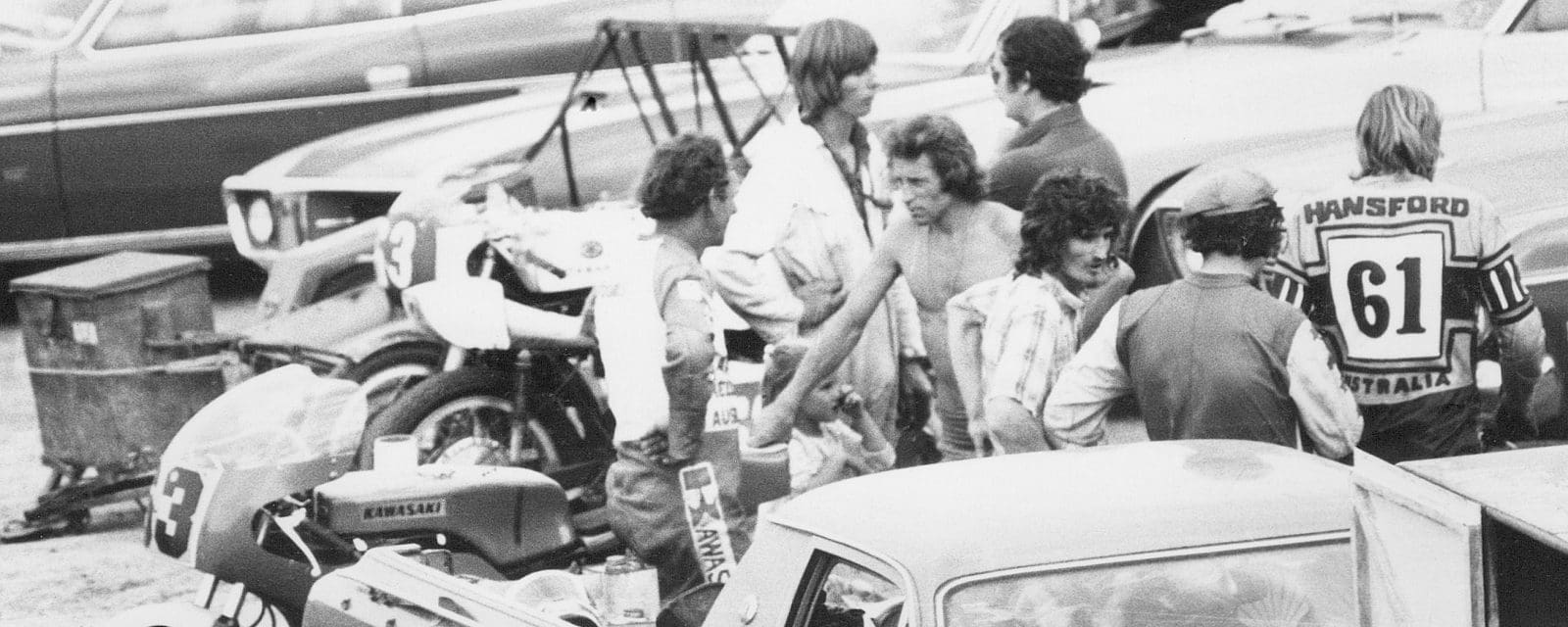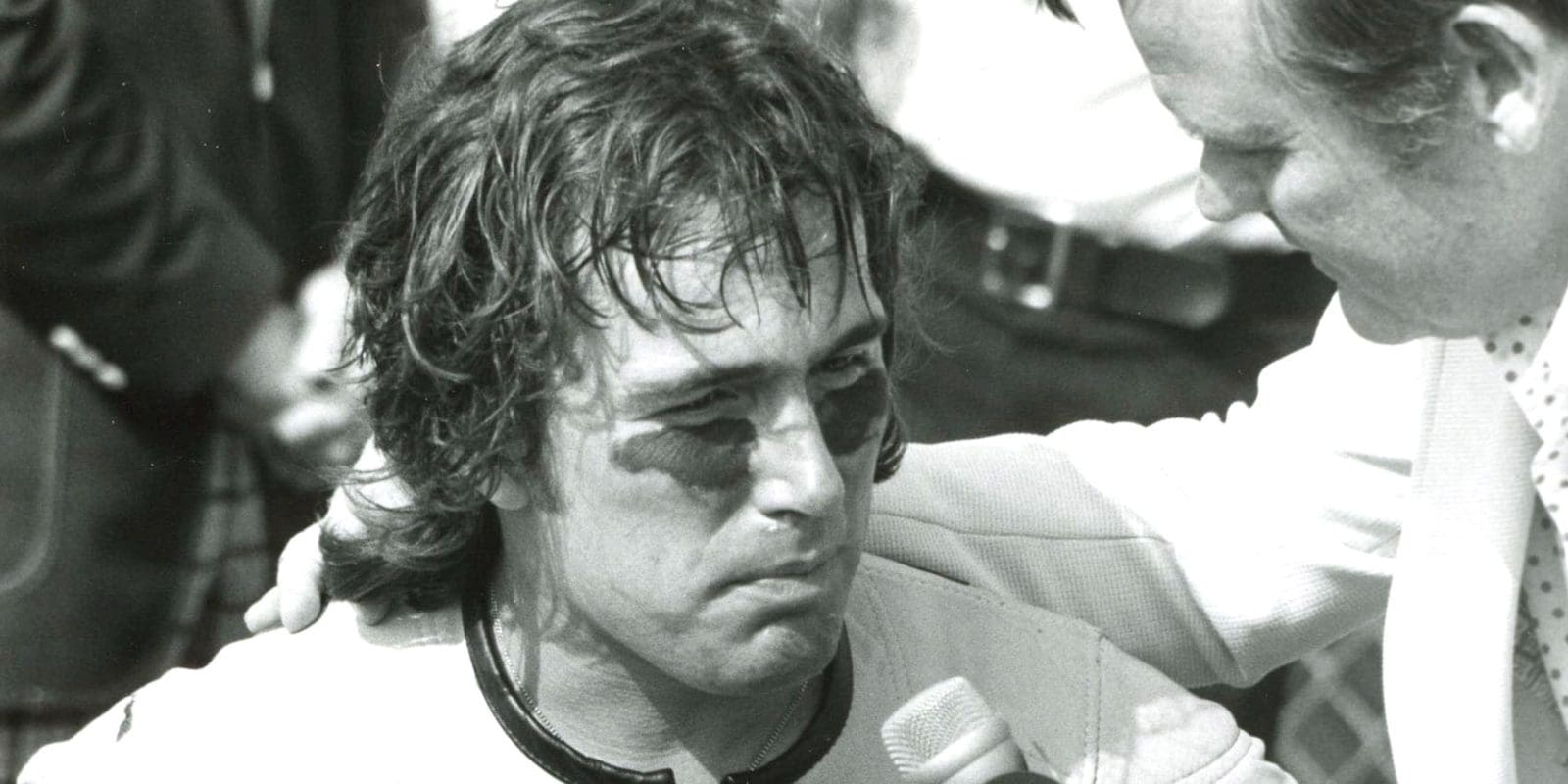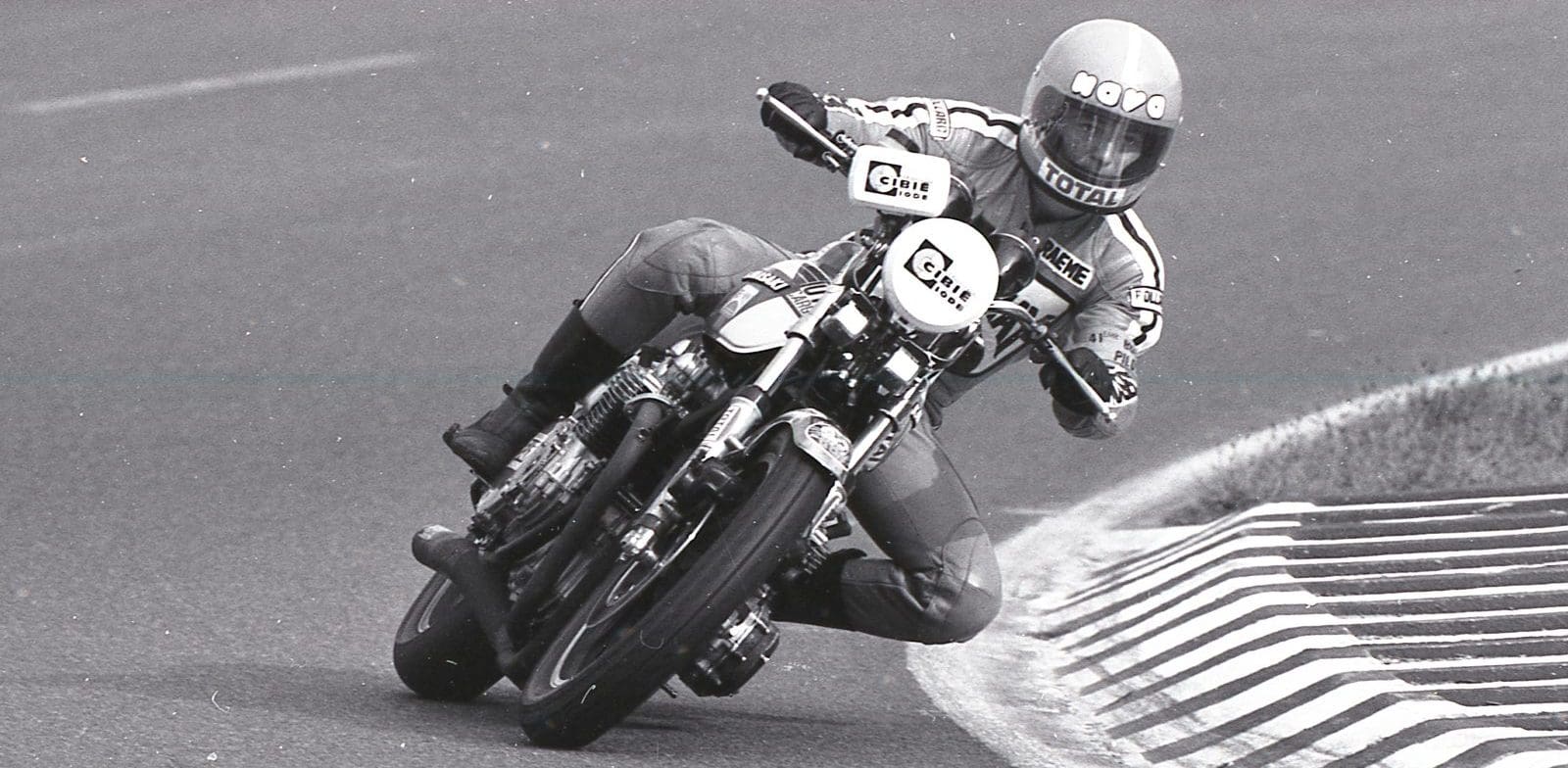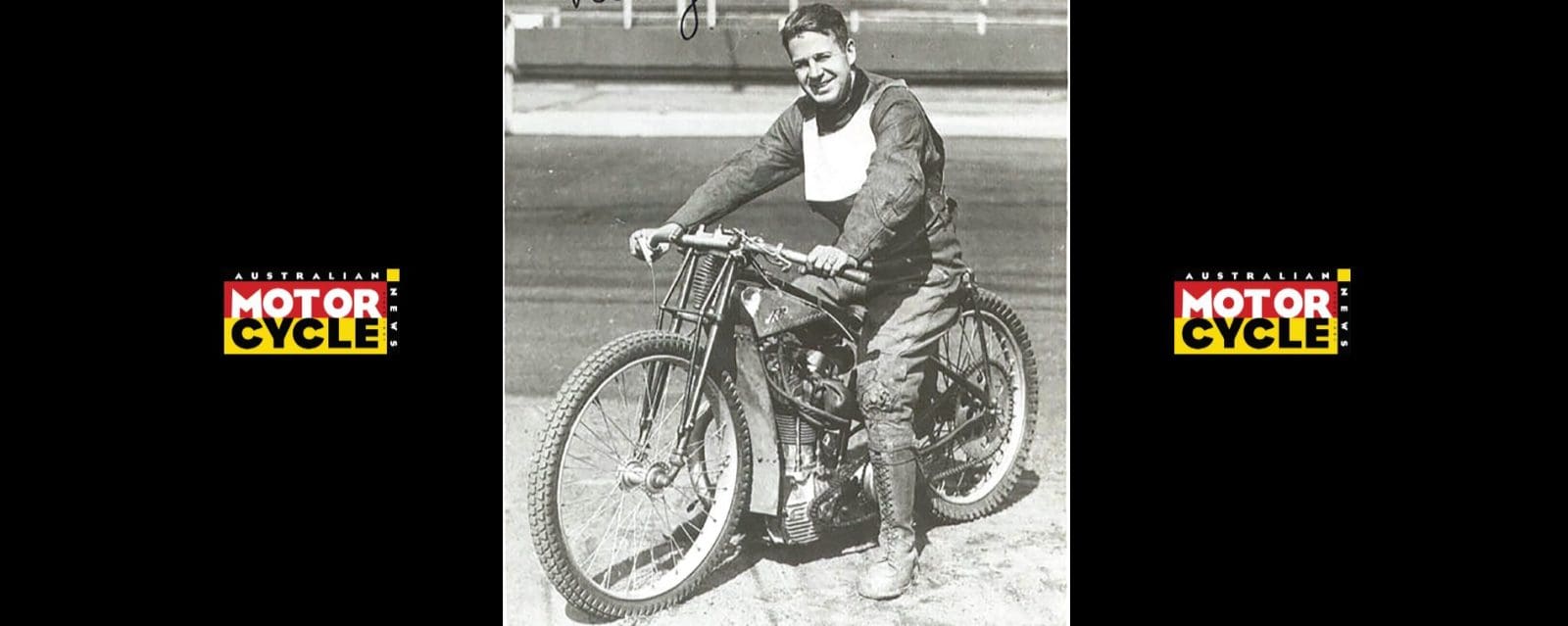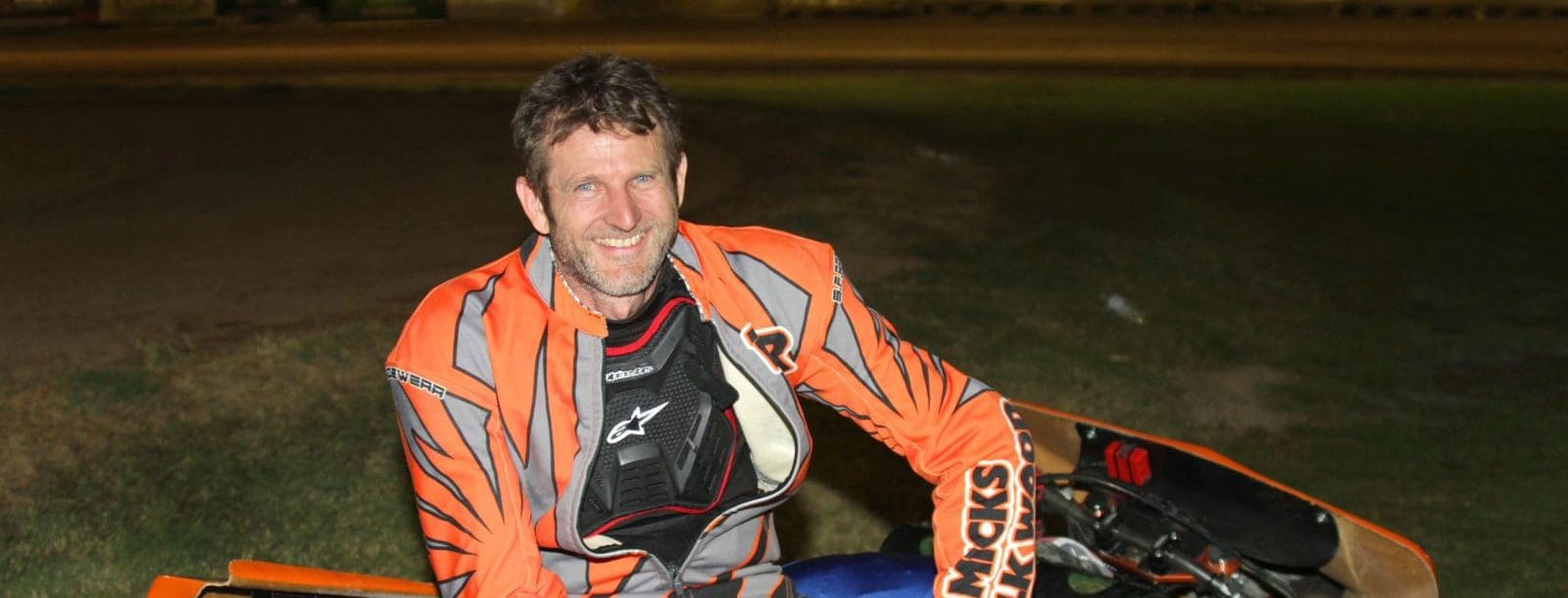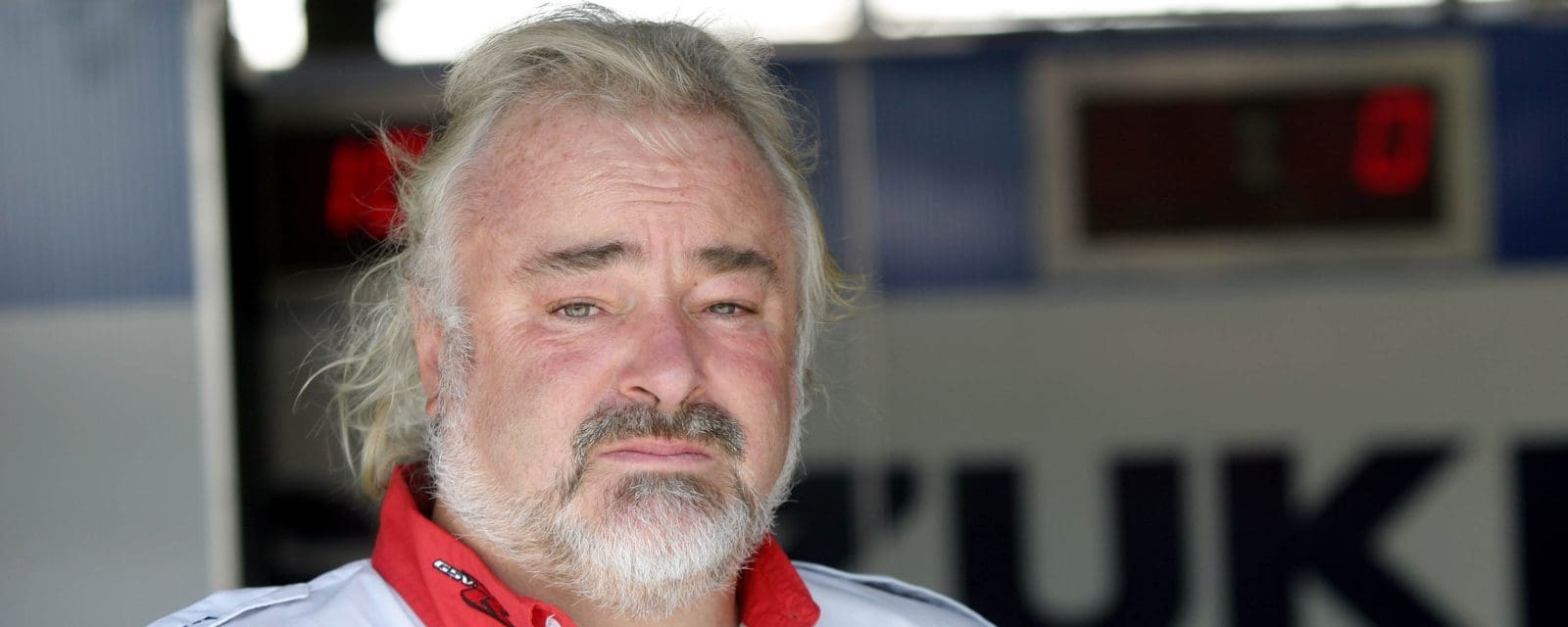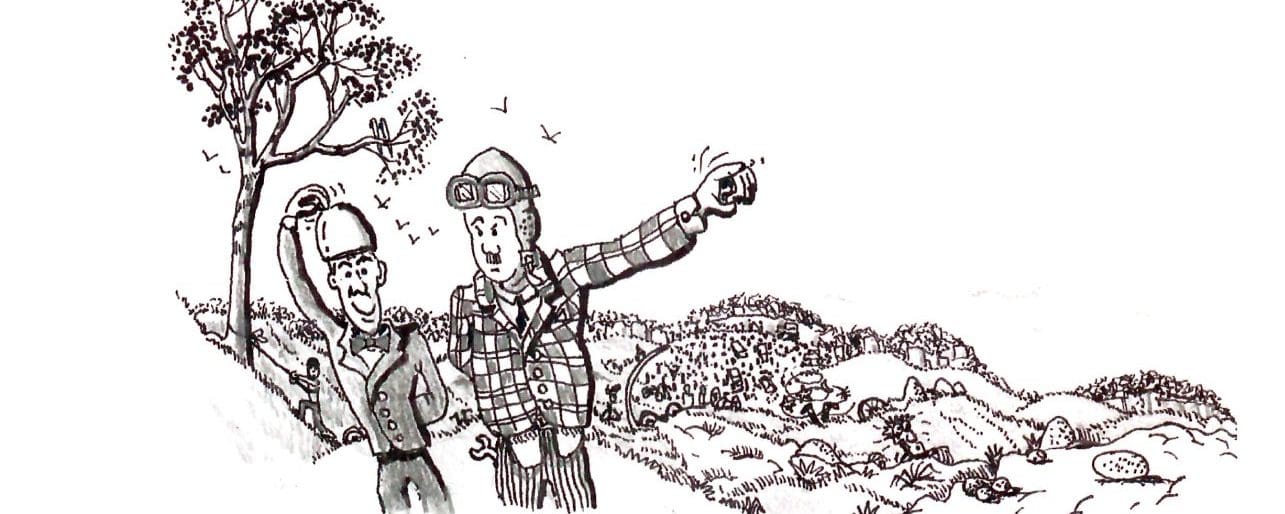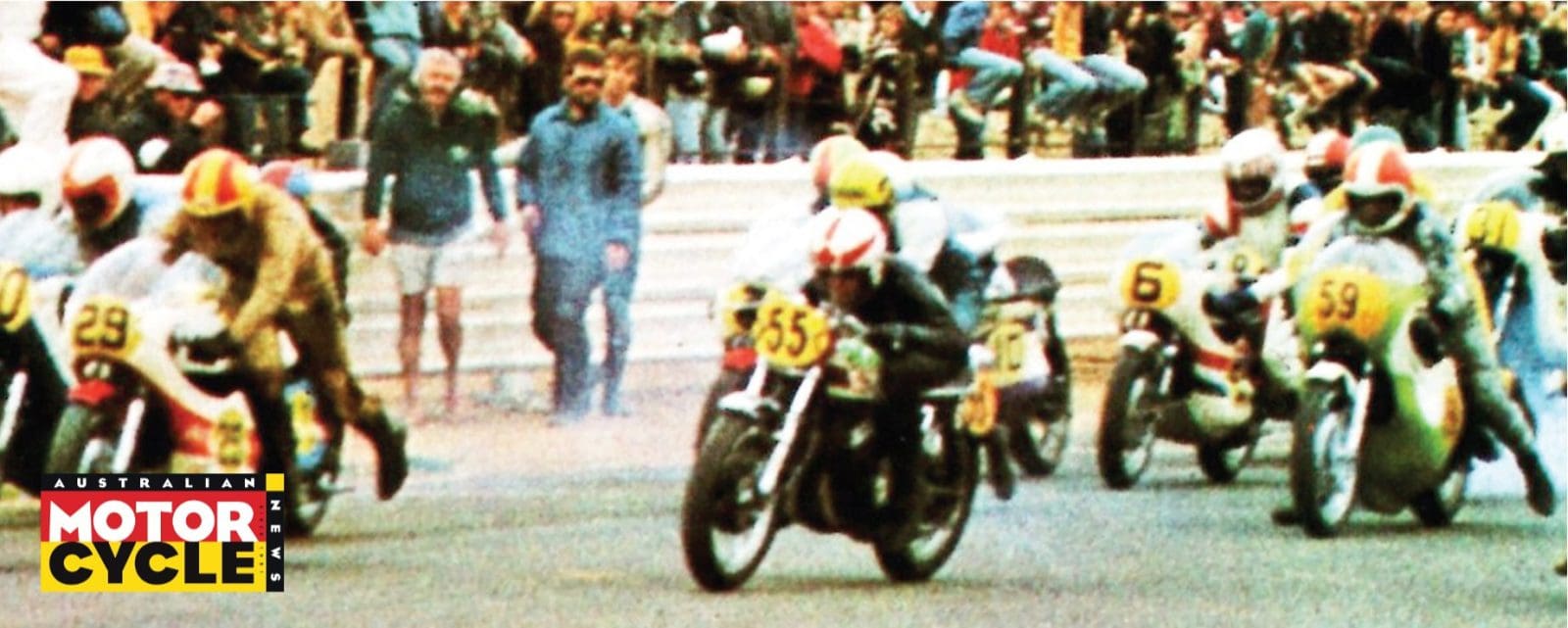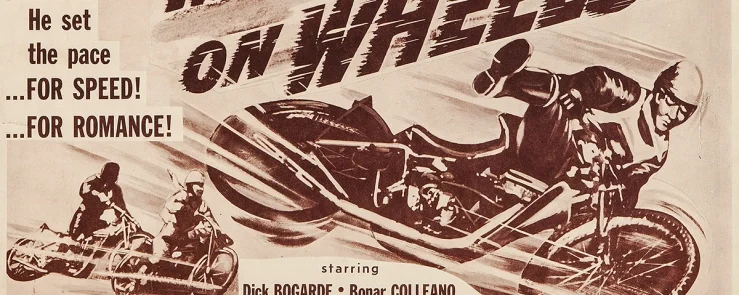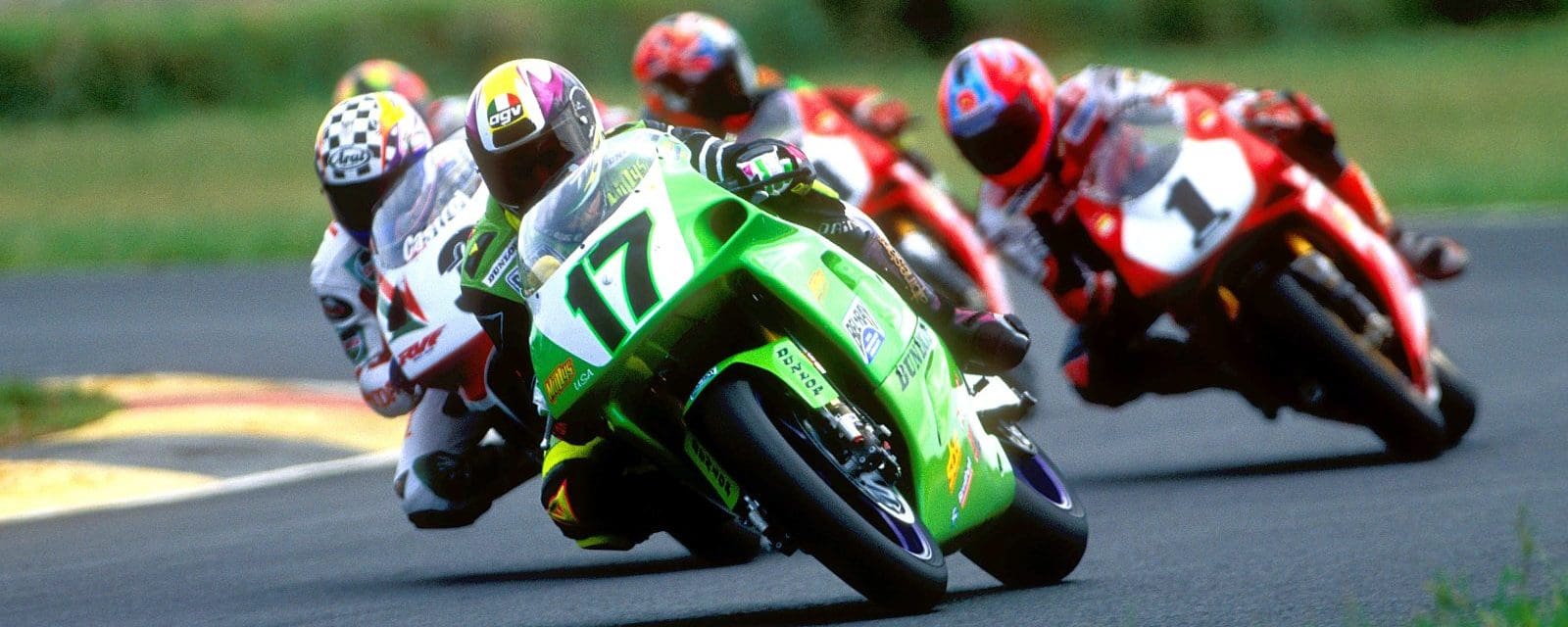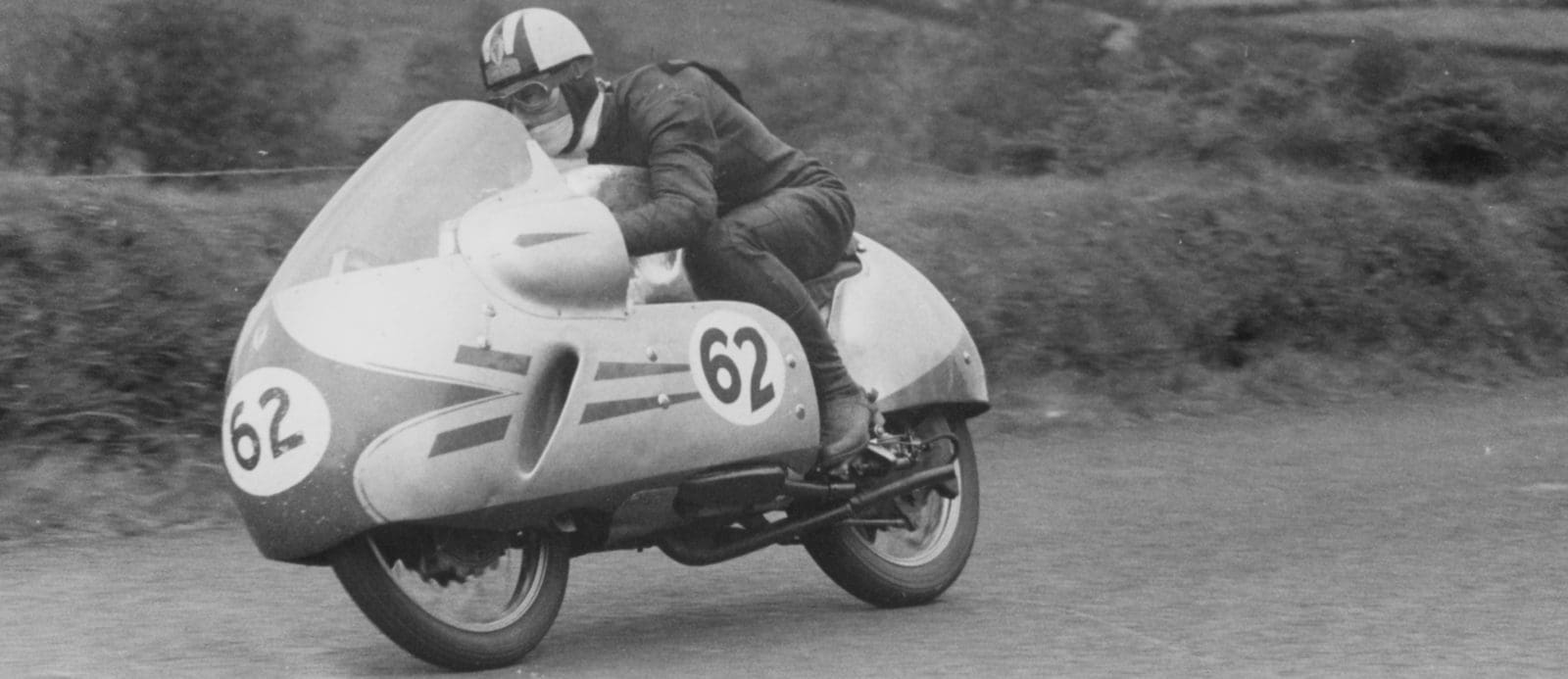Anthony Gobert was the very antithesis of a modern professional racer. In every way, except for one. He was really, really fast.
The sad yet unexpectedly affirmative story of his roller-coaster career and cruelly shortened life could have been so different. Anthony, who died on 17 January aged just 48, was supremely talented, but ultimately fatally flawed.
It is a sad story, yet perversely has positive elements. For all the things he did right and all the others he did wrong, “Goey” did it his way, with total personal integrity. He never stopped short of excess, and had all the highs and lows you’d expect. Somewhat inevitably racing turned its back on him. Or perhaps it was the other way round. But through it all, the fans loved him. As the tributes from far and wide showed after his death in a Gold Coast hospice.
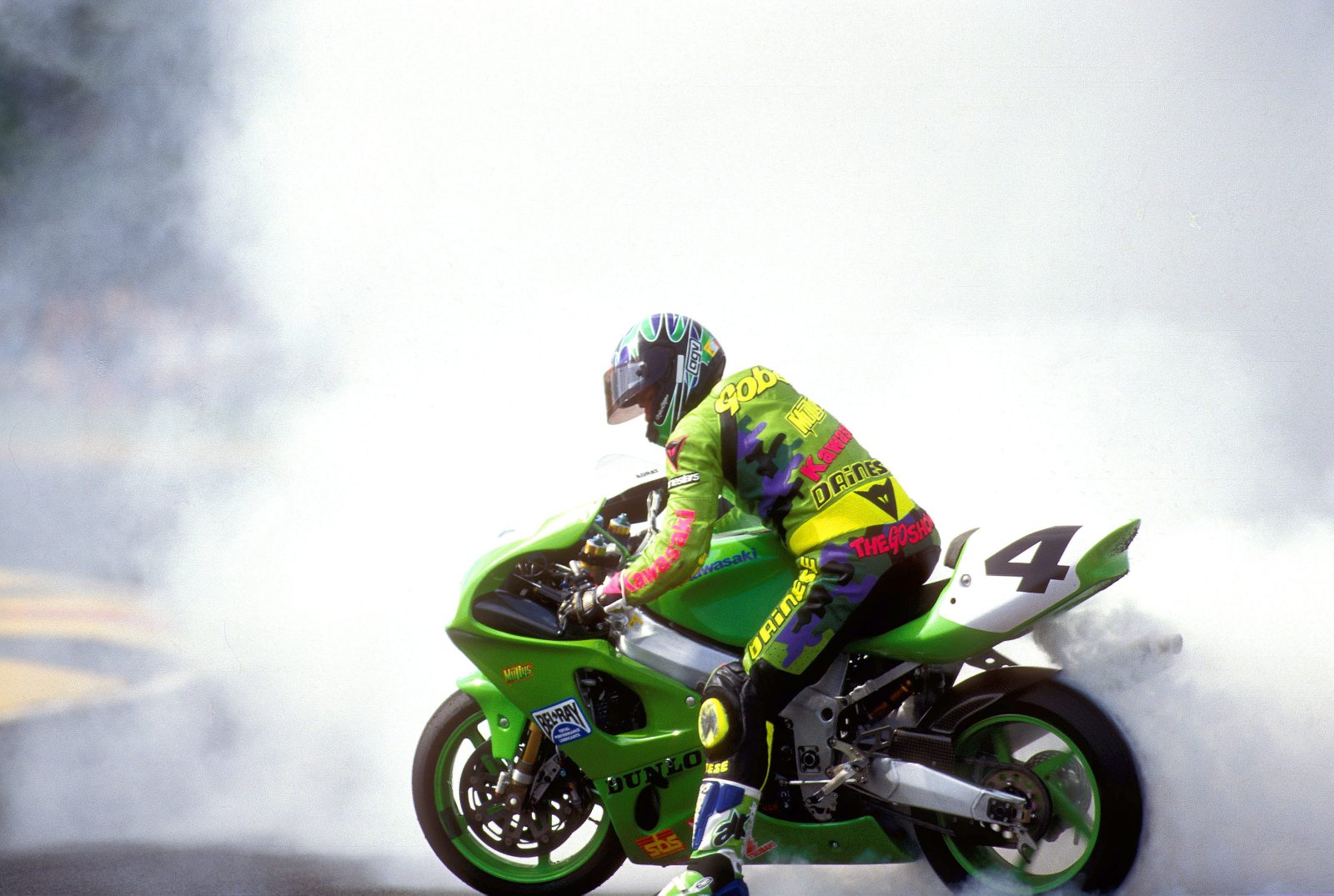
Many compared him favourably to the sanitised stars of today, all corporate uniforms, polite comments and fake bonhomie. Anthony Gobert was cheerful enough and generally polite, but never pulled his punches. Rivals were rivals, and he relished beating them.
His uncompromising attitude as much as his blinding speed inspired fierce loyalty from his followers, but the opposite from power figures in racing. So when he went off the rails, there was scant support from the establishment.
Anthony Gobert, born in the Sydney suburb of Camden on 5 March, 1975, seemed created to race. His first successes were on the dirt, where hard riding and devastating speed earned serial success. The teenager then won motocross and short-circuit races and titles in Australia and New Zealand.
It was a short step to the tarmac, where his rapid progress and stunning successes continued. He won his first national Superbike race at Phillip Island in 1992, aged 17 years; earned a full-time ride in the national series in 1993, and won the title in 1994.
That same year he came to international prominence with a striking wildcard win in the season-ending World Superbike race at Phillip Island. It was achieved at the expense of Superbike royalty, including Scott Russell and Carl Fogarty, and followed a pole position and third place in Race One. At 19, he was the youngest SBK winner so far.
That was on a Muzzy Kawasaki, and the US entrant signed him up for the following season.
The future looked bright, and “The Go Show” became famous for celebrating his two wins and four more World Superbike podiums lavishly on the way to fourth overall, which would turn out to be his best position. One of those wins was again at Phillip Island, cementing his popularity with Australian fans.
And even more so the following year, 1996, when, by now with flamboyant Ronald McDonald red hair, he took a double win at the home circuit. Injury and missed races spoiled his title bid but he was still riding high. Revelling in the combination of fame and notoriety, he stripped to his underpants on the Phillip Island podium and hurled his leathers into the crowd.
The big time came with a 1997 500cc GP factory contract, Suzuki still reeling from the loss of Kevin Schwantz mid-1995. Goey would join GP winner Daryl Beattie, replacing Scott Russell. Goey regularly beat Beattie, and was five times in the top 10 with a best finish of seventh.
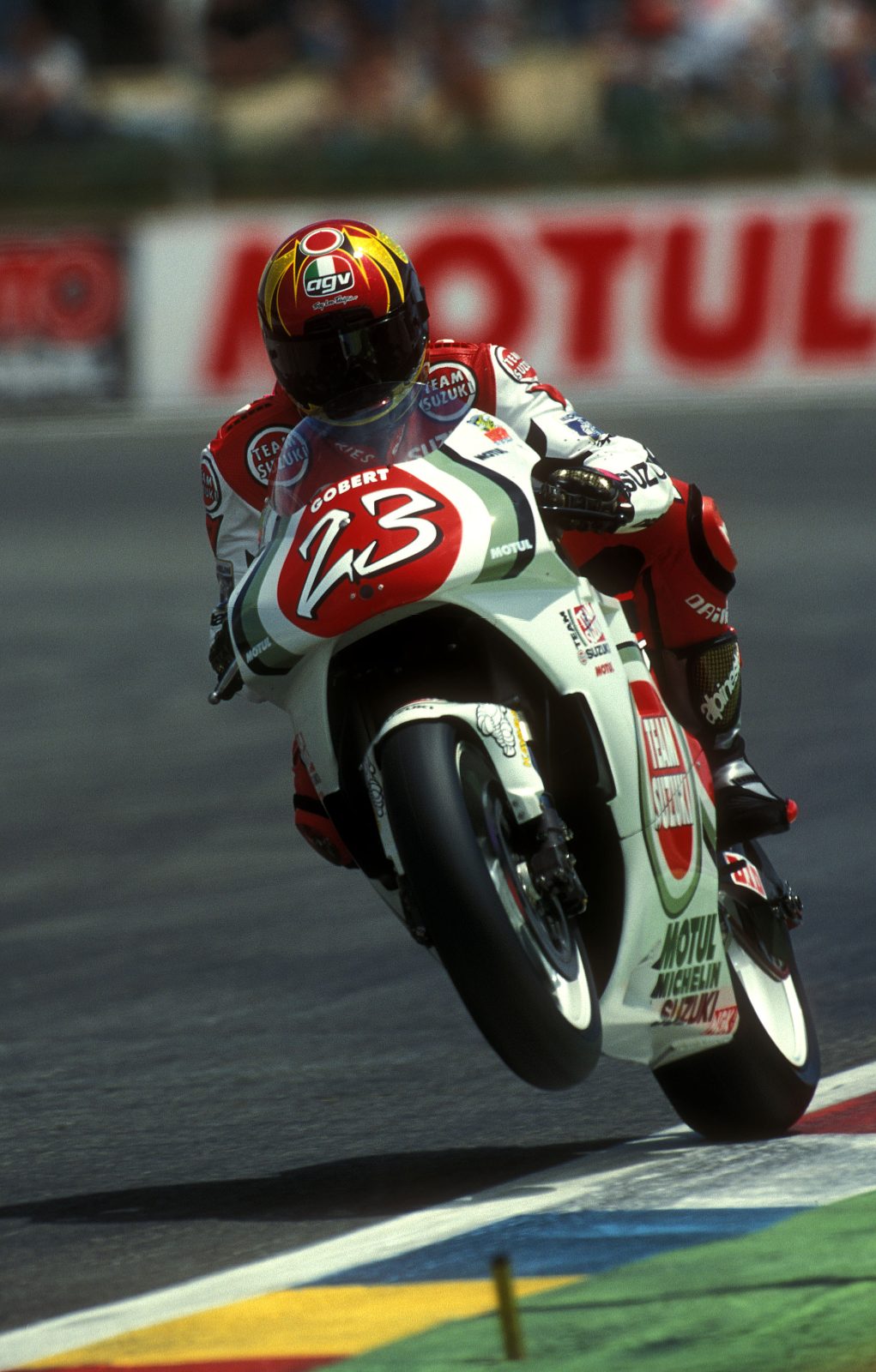
After being punted by Suzuki for failing a drug test, he was signed up by Vance and Hines to ride a Ducati in the US. He was banned from one race after a failed drug test in 1998; but three wins saw his V&H contract renewed for 1999. This was one of his best years. He might have won the title after five race wins, the most of anyone, had injury not ruled him out of the final races. He also added another WorldSBK win as a wildcard at Laguna Seca, and a single GP ride (to 10th) on the under-performing MuZ in Rio. This was followed the next year with a one-race one-point GP ride on the uncompetitive Kenny Roberts Modenas in the UK round.
He signed for a downbeat Bimota team ride in WorldSBK in 2000, winning in the wet in Australia, but the bike was uncompetitive and the team folded. It was back to the USA on a slow Yamaha in 2001, a year distinguished by two Superbike wins and a fighting second overall in the Supersport class. Injury meant just one win in 2002. He spent 2003 (in the words of the Motocourse report) “smoking and drinking his way to another sacking”, by the American Ducati Austin team. Finally a drink-driving conviction the following year ended his US adventures.
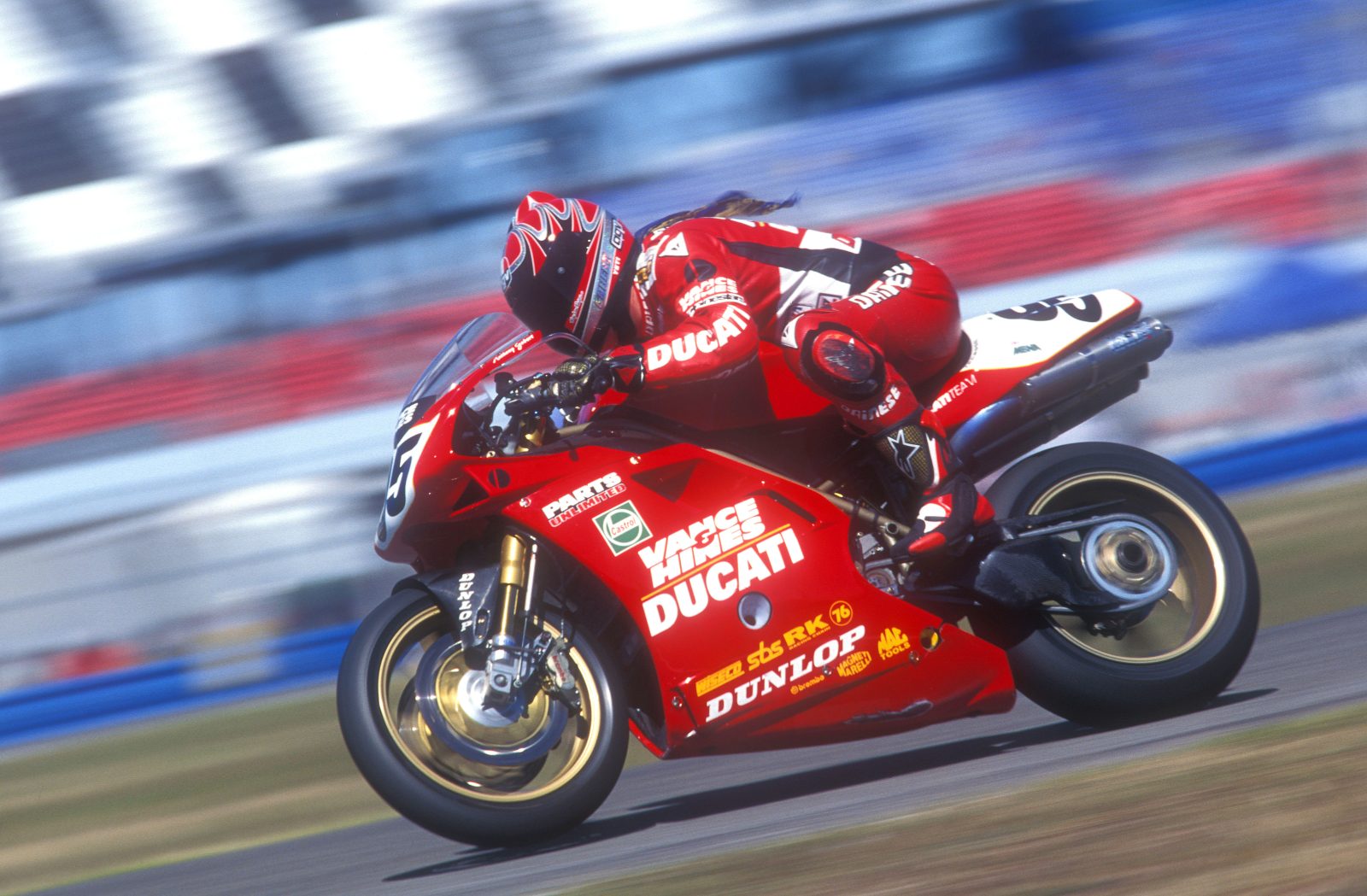
Anthony’s death was announced in a heart-wringing statement from his mother, Suzanne Gobert.
“At times he was challenging to say the least,” she wrote. “But he always had a kind heart and cared for everyone. Sadly he was a victim of addiction, which runs deeply in our families. He tried many times to get better but he couldn’t quite make it. I am so proud of him and thank all those good people who added to his life.”
RIP, Goey.
(This is an extract from a full feature which will appear in AMCN Vol 73 No 15, on sale 1 February 2024)
Words Michael Scott Photos Gold&Goose
